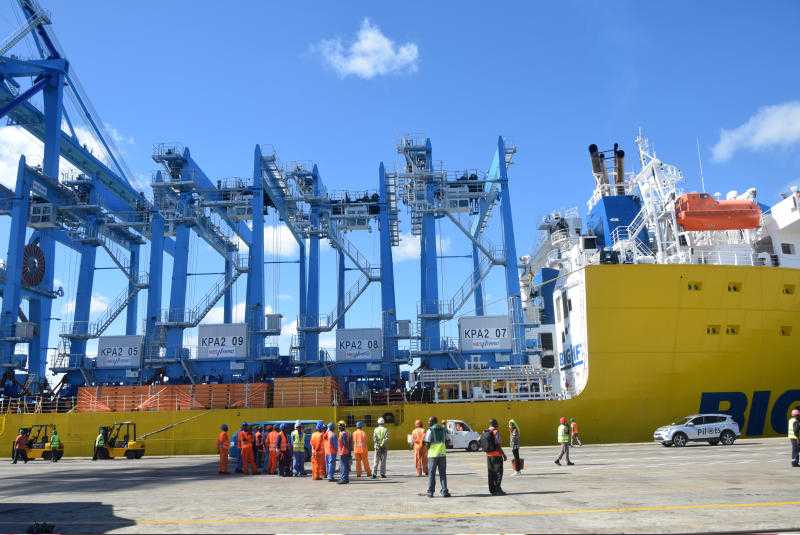×
The Standard e-Paper
Home To Bold Columnists

The MV Big Lift Barentsz ship docked at the Kenya Ports Authority's (KPA) newly constructed container terminal. The new cranes worth Sh5.34 billion are meant to boost efficiency at the port. [Gideon Maundu, Standard]
Early this month, a Ship arrived from Saudi Arabia carrying 40,000 tonnes of Calcium Ammonium Nitrate fertiliser.